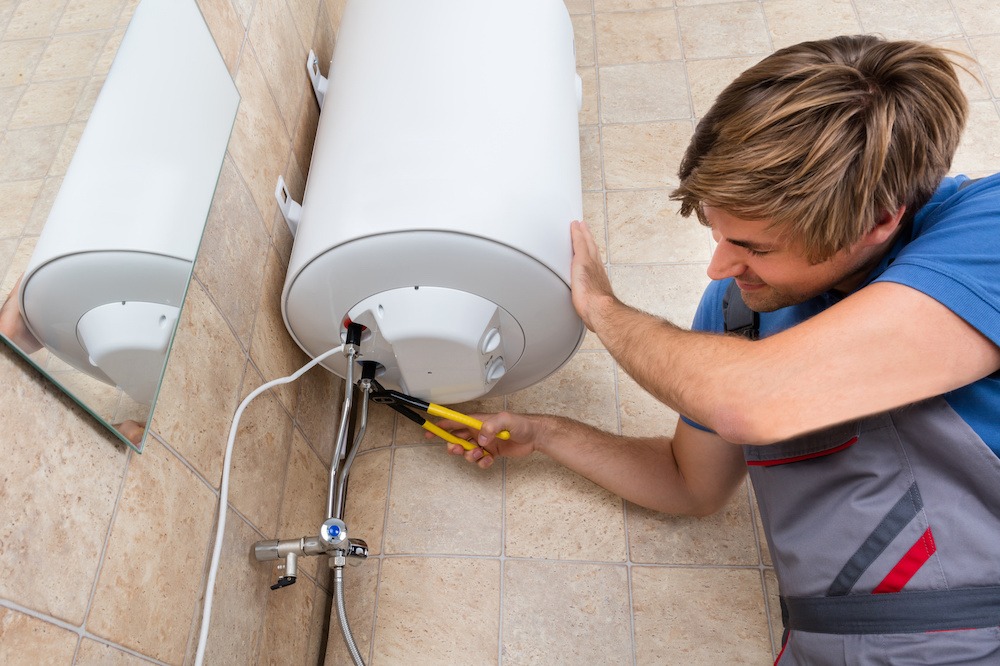
water heater installation Kingston
Installing a new water heater might sound simple, but it’s not a job to jump into unquestioningly. Whether your old unit stopped working or you’re just ready for an upgrade, it’s not as easy as swapping a battery. You’re probably asking: What should I know before installing a new water heater? That’s where a water heater installation Kingston can save you time, money, and plumbing disasters.
The short answer? You need to understand your home’s needs, choose the right size, follow local codes, and know when to call for plumbing services. Skipping even one step can lead to trouble.
In this guide, we’ll walk you through everything—types, sizes, common mistakes, and the not-so-obvious things people overlook. By the end, you’ll know exactly what to consider before booking a water heater installation.
Things To Check Before Water Heater Installation
Before installing anything, make sure you’ve covered all your bases. Here are five things you can’t skip:
- Check local plumbing codes
Some areas ban certain heater types or require permits.
- Measure your space
A new heater may not fit where the old one did.
- Inspect your ventilation
Especially if you’re installing a gas unit.
- Know your fuel type
Electric and gas units have different needs.
- Plan for maintenance access
Leave room around the unit for future service.
Fact: Not all heaters are plug-and-play. Sometimes, small upgrades (like new venting or gas lines) are required to meet safety standards.
How Big Does Your Water Heater Really Need To Be?
First of all, size matters. And when it comes to water heaters, it’s one of the most common mistakes homeowners make. Too small, and you’re out of hot water halfway through a shower. Too big, and you’re just wasting energy and money.
To begin with, you’ll need to consider how much hot water your household uses. Do you have a big family? Multiple bathrooms? A dishwasher and washing machine that run constantly? You may need something larger than the standard 40-gallon tank.
Here’s a simple guide:
| Number of People | Recommended Tank Size |
| 1–2 | 30–40 gallons |
| 3–4 | 40–50 gallons |
| 5+ | 50–80 gallons |
Quick Tip: If you often run two showers at once, lean toward the larger end.
For tankless models, you’ll want to measure flow rate instead. They are hot on demand, but they still need to be kept up with usage.
Ultimately, choosing the wrong size can lead to cold showers, energy waste, or even system burnout. Always factor in future needs, too, like guests or growing families.
Hidden Costs That Catch You Off Guard
Without a doubt, buying the unit isn’t the only cost involved. Many homeowners forget to budget for everything else that comes with it. That’s where frustration begins.
In most cases, you might also pay for:
- Permits and inspections, depending on your city or state
- Installation supplies like pipes, valves, connectors, and expansion tanks
- Disposal fees for your old heater
- Structural changes if the new heater is a different size
- Upgrades to meet local building codes or efficiency requirements
Indeed, working with professionals to get a water heater installation Kingston not only saves you time but also helps you save money and avoid headaches.
Danger: Skipping permits or trying to DIY can result in code violations, leaks, or voided warranties.
As a result, when you plan, you avoid that moment of regret when your bill doubles.
Do You Want A Tank Or A Tankless?
This decision can, without question, change your experience entirely. A traditional tank stores hot water, while a tankless unit heats water only when needed. Each has its pros and cons.
Tank Water Heaters:
- Cheaper upfront
- Simple to install
- Great for steady, moderate use
Tankless Water Heaters:
- Saves energy over time
- Endless hot water
- Smaller and wall-mounted
Suggestion: If you live alone or with just one other person, tankless might be ideal. For larger families, tanks can be more reliable and cost-efficient.
This is where searching for “plumbing services near me” can help guide you based on your lifestyle and home layout. Above all, think long-term. Tankless models last longer, but they cost more initially.
When DIY Goes Wrong, Invest In Plumbing Services
Let’s be real. Watching a few videos online doesn’t make you a plumber. Water heater installation comes with risks that many people underestimate.
Here’s what can go wrong:
- Gas leaks
- Electrical shorts
- Improper venting
- Water damage from loose fittings
- Voided warranties from bad installs
Even if you’re handy, a small mistake can cost more than hiring help from the start. Licensed pros who offer plumbing services are trained to spot issues before they happen.
Warning: Most manufacturers require professional installation to honor warranties. If you do it yourself and something fails, you’re on your own.
Therefore, sometimes the smarter choice is to call someone who installs water heaters every day, not once every ten years.
Signs It’s Time for Replacement
Is your current unit ready to retire? Watch for these signs:
- Inconsistent water temperature
Hot one minute, cold the next.
- Strange noises
Rumbling or popping sounds from the tank.
- Leaks around the base
Even small ones mean trouble.
- Rust-colored water
It could be from the tank or pipes.
- Rising energy bills
Older units work harder to heat water.
Info: Most water heaters last 8–12 years. If yours is older, start planning now before it fails at the worst time, like the morning of a big event.
Let Pros Handle the Heavy Lifting
By now, you’ve probably figured out that water heater installation isn’t a weekend DIY project. It involves gas, water pressure, and electrical hookups—not exactly casual territory.
Moreover, by searching for “residential plumbing services near me,” don’t just do the job faster—they do it right the first time. They’ll make sure your system is code-compliant, safe, and ready to last for years.
Plus, they’ll handle:
- Correct venting
- Safety valve setup
- Leak testing
- System calibration
Fact: Many pro installers offer same-day service and take care of hauling off the old unit, too.
Don’t gamble with safety. If your goal is reliable hot water with no surprises, call a licensed installer and breathe easy.
Conclusion: Make the Smart Move Before You Make the Big Move
So, what should you know before installing a new water heater? A lot more than just the price tag. You need to know the right size, type, and setup for your home. You also need to budget for more than just the unit, and be honest about your DIY limits.
They will assist you in selecting the best model, subsequently set it up safely, and ensure that your showers remain hot throughout the year.
Are you prepared to make the switch, and do so without any regrets? First, know your facts; then, call an expert team at Six Point Plumbing. Finally, say goodbye to cold surprises.





